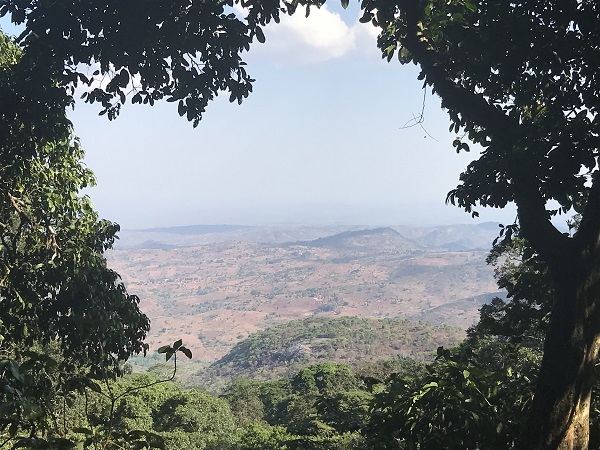On World Environment Day: Reimagining, recreating and restoring landscapes in Malawi
5th June will be World Environment Day 2021, with the theme “Reimagine. Recreate. Restore.” The day also marks the beginning of the United Nations Decade on Ecosystem Restoration.
The need for ecosystem restoration in Malawi is particularly evident. Three quarters of the country’s land surface has been deforested. Deforestation leaves land void of vegetation. This means less to intercept rainfall, which runs off bare surfaces and causes flooding, particularly in downstream areas.
The exposure of the soil to wind and water leads to degradation and erosion. The eroded material is then deposited in water courses where it contributes to flooding and impedes hydropower generation and irrigation systems.

Bare surfaces also enable rainfall to wash off agricultural chemicals and other pollutants into Lake Malawi, which suffers periodic algal blooms and consequences on water quality. As a result, nearly 10% of assessed fish species in the lake are endangered.
All of this has consequences for lives and livelihoods – even more so in the context of a changing climate. The majority of Malawi’s population is dependent on agriculture. Not only does farming yield ever lower returns when practised in degraded ecosystems, but certain farming practices themselves contribute to further degradation. Fish from the lake is a major source of protein for many Malawians, but the combination of eutrophication and overfishing means that catch is declining, with implications for food security and nutrition.
The need to restore ecosystems has attracted the highest levels of political attention. President Lazarus Chakwera launched a tree planting campaign as part of the 2020-21 forestry season where 56 million trees were planted.
Political commitment has been reflected in policy development. The National Forest Landscape Restoration Strategy finalised in 2017 with the aim of restoring forest landscapes to accomplish social and environmental goals. A key part of this strategy has been to improve coordination among various actors and activities, which will be key if the country is to achieve the goal of restoring 4.5 million hectares by 2030.
Malawi has also been showing its commitment on the global and regional stages. At this week’s Global Landscapes Forum-Africa Minister of Forestry and Natural Resources, Nancy Tembo, was part of the launch of the GEF-7 Drylands Sustainable Landscapes Impact Programme, which aims to transform management of drylands, including among the Miombo and Mopane ecosystems of southern Africa.
Malawi’s Forest Landscape Restoration Focal Point, Tangu Tumeo, also played a prominent role at the forum, moderating a session on Translating global processes into action: Leveraging UN Food Systems Summit solutions in the restoration decade.
Given the importance of healthy ecosystems in building resilience and adapting to climate change, the BRACC partners are engaged in various activities to promote restoration.
Modern Cooking for Healthy Forests is supporting sustainable forest management and energy options – including through understanding the driving forces of deforestation. Chief of Party, Ramzy Kanaan, recently participated in a webinar from USAID’s Bureau for Development, Democracy and Innovation with the Thinking and Working Politically Community of Practice in which he highlighted how political economy analysis in Malawi is identifying root causes of damaging practices so that they can be more effectively be addressed.
In working to build the resilience of households and communities, PROSPER (Promoting Sustainable Partnerships for Empowered Resilience) is promoting climate-smart agriculture through farmer field school and lead farmer approaches; and also supporting watershed management.
Watershed management is also promoted by GIZ through Joint Support to the Implementation of Social Protection for Ultra-Poor People in Malawi. As part of its support to the Malawi National Social Support Programme II (2018-23), the project supports government in the implementation of a watershed management-focused public works programme.
Last but not least, in developing climate-resilient livelihoods for communities around protected areas, African Parks is reducing poaching and promoting wildlife conservation in three of Malawi’s iconic protected areas: Majete Wildlife Reserve, Nkhotakota Wildlife Reserve and Liwonde National Park.
